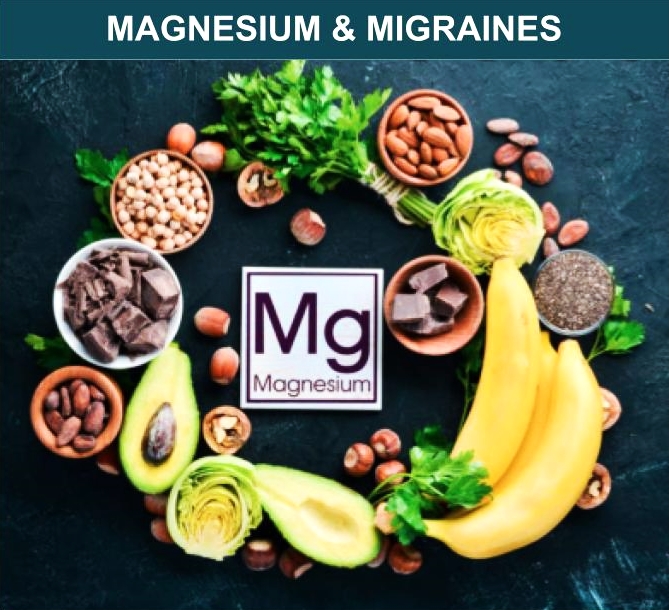
Magnesium, an essential mineral in the body, is involved in protein synthesis, muscle and nerve function, blood glucose control, and blood pressure regulation. It is required for energy production and is important to nerve impulse conduction, muscle contraction, and normal heart rhythm.
Magnesium deficiency is related to factors that promote headaches, including neurotransmitter release and vasoconstriction. People who experience migraine headaches have lower levels of serum and tissue magnesium than those who do not. There is some evidence that 300 mg magnesium twice a day, either alone or in combination with medication, can prevent migraines. In their guideline update, the American Academy of Neurology and the American Headache Society concluded that magnesium therapy is possibly effective for migraine prevention.
Magnesium is naturally present in many foods, added to other food products, and available as a dietary supplement. Green leafy vegetables, such as spinach, legumes, nuts, seeds, and whole grains, are good sources of magnesium. Approximately 30% to 40% of the dietary magnesium consumed is typically absorbed by the body. Dietary surveys of people in the United States consistently show that many people consume less than recommended amounts of magnesium. Assessing magnesium status is difficult because most magnesium is inside cells or in bone. Less than 1% of total magnesium is in the blood serum.
Absorption of magnesium from different kinds of magnesium supplements varies. Forms of magnesium that dissolve well in liquid are more completely absorbed in the gut than less soluble forms. Small studies have found that magnesium in the aspartate, citrate, lactate, and chloride forms is absorbed more completely and is more bioavailable than magnesium oxide and magnesium sulfate. Forms of magnesium most commonly reported to cause diarrhea include magnesium carbonate, chloride, gluconate, and oxide.
Please discuss whether magnesium supplementation is appropriate for you with one of our providers.
–Alice Wong, NP
https://ods.od.nih.gov/factsheets/Magnesium-HealthProfessional/
